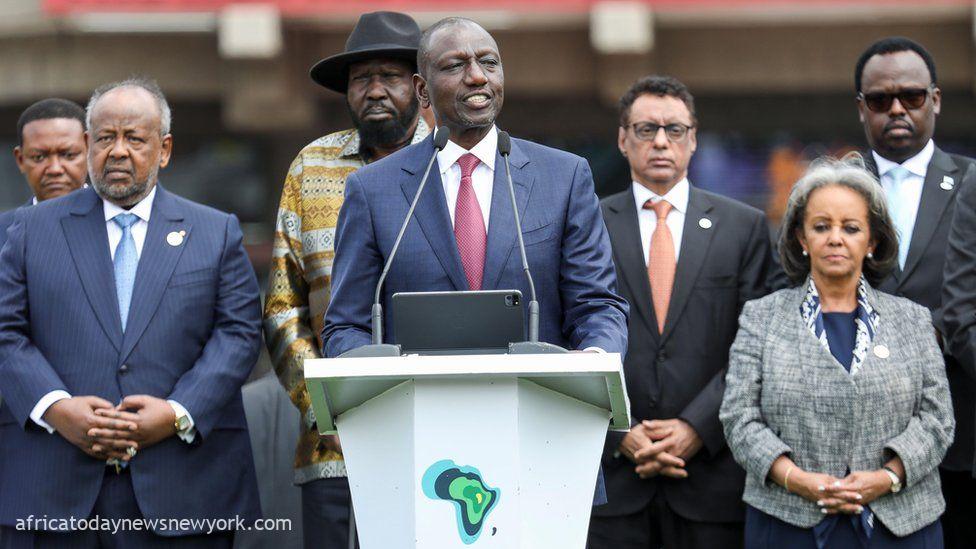A global carbon tax regime in a joint declaration has been proposed by African leaders in a bid to find lasting solutions to the issues surrounding climate change.
The three-day Africa Climate Summit in Kenya’s capital came to an end with the Nairobi Declaration.
The statement, which was made public on Wednesday, urged that major polluters contribute more money to aiding developing countries.
African heads of state said they will use it as the basis of their negotiating position at November’s COP28 summit.
The African Climate Summit was dominated by discussions on how to mobilise financing to adapt to increasingly extreme weather, conserve natural resources and develop renewable energy.
Africa Today News, New York reports that Africa is among the most vulnerable continents to the impact of climate change, but according to researchers, it only receives about 12% of the nearly $300bn (£240bn) in annual financing it needs to cope.
The Nairobi Declaration urged world leaders ‘to rally behind the proposal for a global carbon taxation regime including a carbon tax on fossil fuel trade, maritime transport and aviation, that may also be augmented by a global financial transaction tax’.
It said such measures would ensure large-scale financing for climate-related investments and insulate the issue of tax rises from geopolitical and domestic political pressures.
Around two dozen countries currently impose taxes on carbon, according to the International Monetary Fund (IMF), but the idea of a global carbon tax regime has failed to gain much traction.
On Tuesday, Kenya’s President William Ruto referred to past proposals in the European Union for a financial transaction tax.
Read Also: Putin Announces Resumption Of Free Grain Exports To Africa
Conservation groups in 2011 said money raised from the tax should finance environmental priorities, but the European Commission’s proposal never won the unanimous approval required from the European Council to become law.
Joab Bwire Okanda, a senior advisor at the Christian Aid charity, said the call for a global carbon tax was welcome but that “to make polluters really pay, false solutions like carbon credits that allow polluters a free ride without taking meaningful action need to be consigned to the dustbin”.
Some activists say the credits, which allow polluters to offset emissions by funding green activities, are a pretext for big polluters to keep emitting carbon dioxide.
Mr Ruto said international governments, development banks, private investors and philanthropists committed a combined $23bn (£18bn) to green projects over the three days, including hundreds of millions to a major carbon markets initiative.
But African leaders acknowledged that those kinds of investments only scratch the surface of the continent’s financial needs and said more systemic changes were needed.
Some analysts said the summit had not focused enough on how to help Africans adapt to extreme weather.
Protesters also criticised the conference, demonstrating outside the event against Africa’s plan to sell carbon credits to foreign countries.
Several foreign companies and countries have committed hundreds of millions in carbon credit purchases from the Africa Carbon Markets Initiative (ACMI), including the United Arab Emirates, which pledged to buy $450m (£358m).
